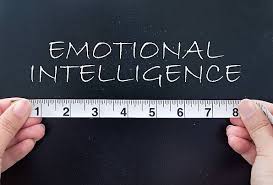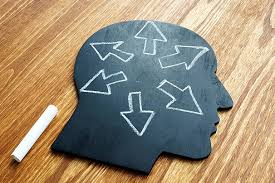Table of Contents

1. Introduction
Defining Emotional Intelligence (EI) and Its Significance for Mental Health
Emotional Intelligence (EI) is a multifaceted concept that has gained significant traction in the realms of psychology, education, and professional development. It is an essential component of human intelligence that extends beyond the traditional cognitive aspects to encompass the ability to understand, manage, and express one’s emotions in a positive and effective manner. EI is crucial for fostering mental health and well-being, as it equips individuals with the tools necessary to navigate through the complexities of human emotions, relationships, and social interactions. This blog post aims to delve into the intricacies of EI, explaining its components, its profound impact on mental health, and the various strategies and exercises that can be employed to cultivate it.
The term Emotional Intelligence was coined by Peter Salovey and John D. Mayer in 1990, who initially described it as the ability to perceive, understand, and regulate emotions in oneself and others. Since then, it has evolved to include a range of interrelated competencies that contribute to a person’s overall emotional and social functioning. EI is a dynamic blend of self-awareness, self-regulation, motivation, empathy, and social skills, which together empower individuals to make conscious choices about how they interact with the world around them.
The significance of EI in mental health cannot be overstated. It serves as a cornerstone for managing stress, developing resilience, and fostering fulfilling relationships. In a fast-paced, demanding world, where stress and burnout are all too common, having a high degree of emotional intelligence is vital. It enables individuals to recognize their own emotions, understand the feelings of others, and respond appropriately to various situations. This heightened awareness and control over emotions contribute significantly to overall mental health and emotional well-being.
The purpose of this blog is to serve as a comprehensive guide for those seeking to understand and develop their emotional intelligence. By exploring the nuances of EI, its role in mental health, and practical methods to enhance it, we aim to empower readers to take charge of their emotional lives and, in turn, improve their mental health.
2. Unraveling the Core Components of Emotional Intelligence
Emotional Intelligence is comprised of five interrelated domains that work synergistically to shape one’s emotional and social capabilities.
a. Self-Awareness: The Foundation of Emotional Intelligence
Self-awareness is the bedrock of EI. It involves recognizing and understanding one’s emotions as they arise, and discerning how these emotions influence thoughts and actions. Being self-aware allows individuals to monitor their emotional state and identify their triggers, which is the first step toward managing them effectively. It is essential for emotional self-regulation and the formation of a robust and adaptable identity.
b. Self-Regulation: Managing Emotions Constructively
Self-regulation is the ability to control impulses and modulate emotions in a way that is conducive to personal growth and social harmony. It involves the management of emotions, thoughts, and behavior to achieve one’s goals and maintain composure in challenging situations. This skill is vital for maintaining a balanced mental state and for preventing the negative effects of emotional outbursts and impulsive reactions.
c. Motivation: The Driving Force Behind Emotional Intelligence
Motivation is the engine that fuels EI. It encompasses the inner drive to achieve personal goals and aspirations, even when faced with adversity. A motivated individual is more likely to maintain a positive attitude and demonstrate perseverance in the face of challenges, which contributes to better mental health and resilience.
d. Empathy: The Key to Understanding Others
Empathy is the capacity to understand and share the feelings of others. It is a cornerstone of emotional intelligence as it allows for meaningful connections and a deep appreciation of human experiences. Empathetic individuals are adept at creating supportive environments and are more adept at navigating social interactions, which can significantly reduce feelings of loneliness and isolation.
e. Social Skills: Building Healthy Relationships
Social skills are the outward expression of one’s EI, encompassing the ability to communicate effectively, negotiate, and resolve conflicts. These skills are pivotal in creating and maintaining strong social networks, which are essential for mental well-being. Effective social interactions lead to a sense of belonging and can significantly enhance one’s quality of life.
Each of these core components plays a distinct role in contributing to overall emotional intelligence and, consequently, mental health. By understanding and developing these areas, individuals can create a foundation for a more balanced and fulfilling emotional life.


3. How Emotional Intelligence Nurtures Mental Health
The cultivation of emotional intelligence is instrumental in fostering mental health and well-being. Here are some of the key ways in which EI influences our mental state:
a. Superior Stress Management
A high level of EI enables individuals to recognize the early signs of stress and employ strategies such as mindfulness or cognitive reframing to mitigate its negative impact. By being adept at self-regulation and understanding their emotional responses, people can better manage stressors and maintain their equilibrium.
b. Stronger Interpersonal Relationships
Empathy and social skills are at the heart of healthy relationships. By developing these facets of EI, individuals can foster connections that provide emotional support and reduce feelings of isolation, which are often detrimental to mental health.
c. Enhanced Resilience
The capacity for self-regulation and motivation underpins resilience—the ability to bounce back from setbacks. Emotionally intelligent individuals are more likely to maintain a positive outlook and possess the tools to recover from life’s adversities swiftly and effectively.
d. Increased Self-Esteem and Self-Acceptance
Self-awareness is a critical component of a positive self-image. By acknowledging and accepting their emotions, individuals can bolster their self-esteem and reduce self-criticism, which are essential for mental health.
The interplay between emotional intelligence and mental health is complex, but the evidence is clear: developing EI is a powerful means of enhancing one’s overall well-being.


4. The Roadmap to Developing Emotional Intelligence
Developing emotional intelligence is a journey of self-discovery and personal growth. Here are some actionable steps one can take to enhance each of its core components:
a. Cultivating Self-Awareness
– Keep a daily emotional diary to track feelings and responses to various situations.
– Practice mindfulness to remain present and aware of your emotional landscape.
– Engage in regular reflection to gain insights into recurring patterns of emotional response.
– Seek feedback from trusted friends and family to gain an external perspective on your emotional state.
b. Refining Self-Regulation
– Implement a pause before reacting to situations to allow for thoughtful responses.
– Use deep breathing and other relaxation techniques to calm yourself when overwhelmed.
– Challenge and reframe negative self-talk to reduce the likelihood of impulsive reactions.
– Establish healthy routines and boundaries to manage stress and maintain emotional equilibrium.
c. Nurturing Empathy
– Engage in active listening, asking open-ended questions to understand others’ viewpoints.
– Imagine yourself in others’ shoes to foster compassion and a deeper connection.
– Reflect on past experiences to appreciate the complexities of human emotions.
– Engage in community service to broaden your perspective and develop a sense of shared humanity.
d. Strengthening Motivation
– Set clear, attainable goals to maintain a sense of purpose.
– Embrace a growth mindset that values learning over perfection.
– Surround yourself with positive influences that encourage personal growth.
– Celebrate achievements to reinforce your intrinsic motivation.
e. Developing Social Skills
– Work on clear and assertive communication to express your needs effectively.
– Engage in conflict resolution training to manage disputes constructively.
– Seek out opportunities to build and maintain meaningful relationships.
– Practice active listening to enhance your ability to connect with others on a deeper level.
5. Practical Exercises to Strengthen Emotional Intelligence
To integrate EI into your daily life, consider incorporating these exercises into your routine:
a. Mindfulness Meditation
Mindfulness is the practice of being fully present and aware of your emotions, thoughts, and physical sensations. Through regular meditation, you can become more attuned to your emotional state and develop a greater capacity for self-regulation.
b. Journaling
Writing about your emotions can provide a cathartic release and help you process complex feelings. It also serves as a tool for reflection, allowing you to recognize patterns and areas for personal growth.
c. Active Listening
Prioritize listening without interrupting or planning your response. This exercise enhances empathy by fostering a genuine understanding of others’ emotional experiences.
d. Daily Reflection
Dedicate time each day to review your emotional responses and interactions. This practice can highlight areas where you excel and identify opportunities for improvement.


6. Overcoming Challenges in Building Emotional Intelligence
While the benefits of developing EI are substantial, the journey is not without its challenges. Here are some common hurdles and strategies to overcome them:
a. The Struggle with Self-Awareness
Embracing self-compassion is essential when dealing with the challenges of self-awareness. Recognize that understanding and managing emotions is a complex skill that requires patience and practice.
b. Taming Emotional Reactivity
Impulsive reactions can be mitigated by learning to pause and employ calming techniques, such as deep breathing or counting, before responding.
c. Building Empathy in a Digital World
In a society where digital connections often overshadow face-to-face interactions, it’s crucial to prioritize human connection. Set boundaries with technology and make a conscious effort to engage with others emotionally.
d. The Importance of Consistency and Patience
EI is not a trait that can be developed overnight. It requires consistent practice and a willingness to confront and overcome emotional obstacles.
7. The Role of Professional Support in Developing Emotional Intelligence
At times, the path to greater emotional intelligence may benefit from professional guidance. Here are some ways in which experts can assist:
a. Therapies and Counseling
Cognitive Behavioral Therapy (CBT) is a widely recognized approach for enhancing self-awareness and emotional regulation. It provides a structured framework for understanding and managing emotions.
b. Emotional Intelligence Coaching
An EI coach can offer personalized strategies and support to help individuals address specific challenges and develop their emotional intelligence systematically.
c. Support Groups and Workshops
Group settings can offer a safe and encouraging environment to practice EI skills alongside peers who share similar objectives.
8. Conclusion: Embracing the Journey Toward Emotional Intelligence
In conclusion, emotional intelligence is an invaluable asset for mental health. By understanding and cultivating self-awareness, self-regulation, motivation, empathy, and social skills, individuals can create a foundation for resilience, strong relationships, and effective stress management. While the journey toward greater EI may be fraught with challenges, the rewards are substantial and include improved mental well-being, richer social connections, and a more fulfilling life.
The development of emotional intelligence is a lifelong process, one that requires dedication and commitment. However, by taking the initial steps—be it through personal reflection, seeking professional help, or engaging in social learning opportunities—readers can embark on a transformative path toward better mental health and a more emotionally balanced existence. Remember that progress is not always linear, and setbacks are part of the learning process. The key is to remain persistent and open to growth.
As you embark on this journey, be patient with yourself. Recognize that building emotional intelligence is an ongoing endeavor that will yield profound and lasting benefits for your mental health. Embrace the process and take comfort in the knowledge that each small victory contributes to a greater sense of emotional mastery and overall well-being. With time, effort, and a willingness to learn, you can harness the power of EI to navigate the complexities of life with greater ease and fulfillment.